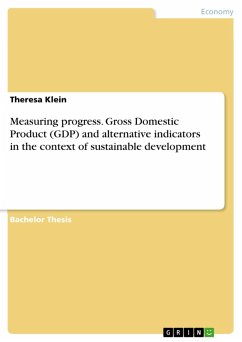Seminar paper from the year 2015 in the subject Economics - Case Scenarios, grade: 1,3, University of Applied Sciences Berlin, language: English, abstract: This paper explores the economic development of the Slovak Republic from post-Soviet control to present day. The following paper explores the recent economic developments of the Slovak Republic, from its accession into the European Union in the early 2000s, throughout the European monetary crisis in the years 2008 - 2009 and finally reflects upon the country's current economic state. In doing so, this paper analyzes the most relevant indicators of international and domestic economic well-being and describes some of the underlying factors for these developments. An analysis of the degree to which Slovakia has overcome the hardships imposed by the economic crisis is also presented. The analyses in this paper rely on statistical information available from public databases and, when applicable, consultation of expert literature for an interpretation of the data. When doing so, the author has attempted to provide data for comparison and context, generally with the average from the EU 27 states or of the other Visegrád Group members, when available. This paper only considers a limited number of indicators of economic well-being for these analyses: balance of payments, openness, foreign direct investment, government deficit and debt, inflation, economic growth, employment, and investment. As a result, some other economically relevant topics may be excluded which could provide an even better analysis of the problem. Social costs and other non-economic factors are entirely omitted from this paper although they play an important role in any country's standard of living. Finally, it is important to note during the analysis of the developments in 2009 and the years afterward that all changes cannot be attributed to the European Debt Crisis as another important event occurred: Slovakia adopted the Euro as its national currency; an event that is often cited as causing initial inflation.
Dieser Download kann aus rechtlichen Gründen nur mit Rechnungsadresse in A, B, BG, CY, CZ, D, DK, EW, E, FIN, F, GR, HR, H, IRL, I, LT, L, LR, M, NL, PL, P, R, S, SLO, SK ausgeliefert werden.









